Vandals, taggers and Gumby’s: Melbourne’s most notorious graffiti gangs revealed
A Melbourne graffiti gang insider has revealed how a clandestine subculture of organised vandals wreaked havoc on the city with brazen attacks, a Mafia-level code of conduct and a rumoured secret street war with rogue transit police.
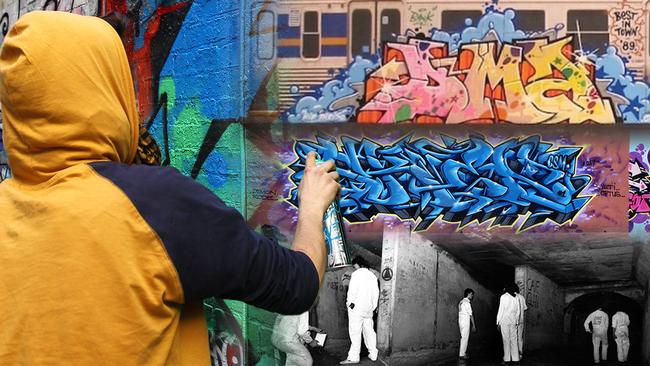
Inner East
Don't miss out on the headlines from Inner East. Followed categories will be added to My News.
Melbourne is now famous for its laneways filled with street art but a subculture of organised graffiti gangs has been wreaking havoc on the city since the 1980s.
A gang insider spoke to News Corp on the condition we keep his identity secret.
“Vandal X” said even speaking to the media would cause problems such is the nature of the graffiti community.
He said most of the “old school artists” and “crews” from the 1980s and 1990s have slowed down and the scene “isn’t what it used to be” but some are still “kicking about”.
Gang members, or taggers or “writers” as Vandal X calls them, are bound by a code of silence which matches the Mafia.
“It’s partly because we don’t like talking about what we do to non-writers but mainly we don’t want to get done by the jacks (police),” he said.
“Our tags do the talking, most graffers, you know real graffers, the ones doing panels in the good crews, they know who’s who.
“A lot of it’s about being creative and the rush but it’s also about the fame … knowing that people have heard of you and know your style.”
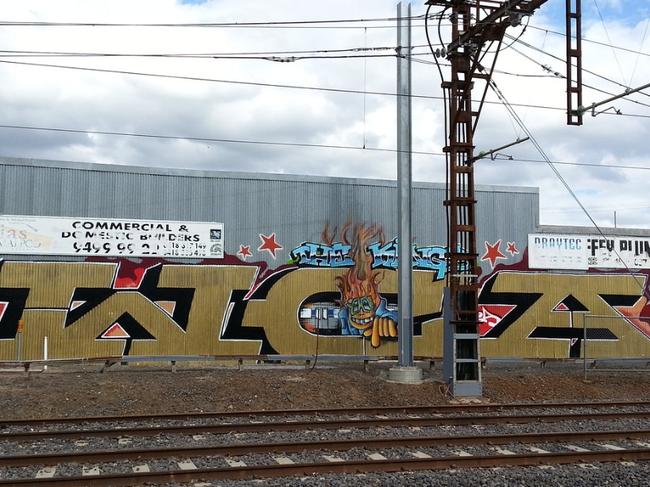
Vandal X said he got started in the early 1990s when there were already a handful of “influential crews”.
He recalls an urban legend about a street war between an outer eastern gang called Crime Wave (CW) and a loathed crew called City Transit Slashing Art (CTSA).
CTSA was rumoured to be made up of old Met employees and transit police who went around “slashing” graffiti.
“There was a (unproven) rumour CTSA were cops causing mayhem going around after dark slashing everyone on the train lines,” Vandal X said.
“I think maybe it was their way of getting revenge on the graffiti artists.
“Who ever they were everyone hated them, they definitely hard a target on their backs, some of the guys back then were pretty nasty especially the C-dub (CW) boys.”
Vandal X said tensions boiled over after a CW member “Hobit” died train-surfing and CTSA began writing “Headless Hobit” along the train lines.
“Nothing happened in the end, there was a tit for tat (abusive graffiti on the lines) but CTSA just kind of disappeared.”
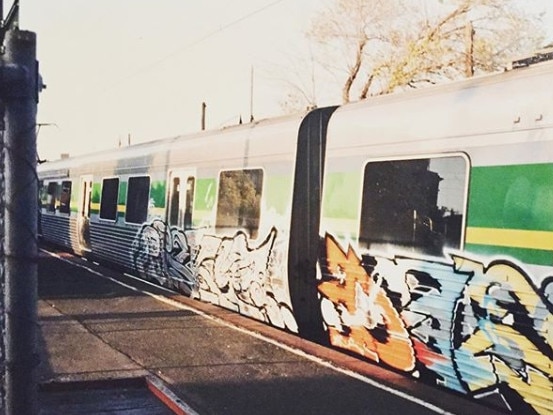
Vandal X said there was a “code of conduct” or unwritten law among Melbourne’s vandals which he said was born out of the New York street culture of the 1980s.
He said the first thing young vandals learn was to know their place in the hierarchy.
“You start out doing shit tags in parks in your local area then when you get good you go further out, buses, bus stops, benches then you hit the train lines,” he said.
“You can’t just go tagging an area where an established crew operates unless you’ve got their respect.
“You can’t just do what you want, there’s guys at the top and guys at the bottom like in anything.
“The guys at the top are the best artists, the most prolific, the ones who do the mad throw-ups or pieces.”
Vandal X said the riskier the spot to graffiti — whether it be to personal safety or getting caught — brought more “respect”.
He said train yards were the “Holy Grail” for vandals because they were harder to get into and were routinely monitored.
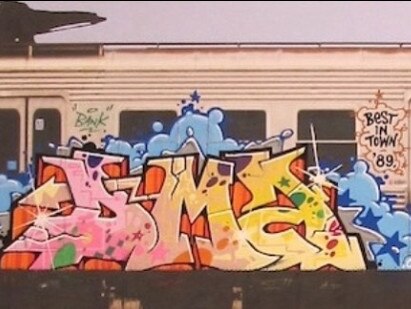
“Doing a panel (vandalising a train carriage) is the ultimate goal,” Vandal X said.
“If you can get one and the train leaves then word gets around there’s fresh panels out but they don’t last long before they’re taken off the network.”
Vandal X said another rule was don’t get caught by a “Gumby” — a nickname for the old Met ticket inspectors who looked like the children’s character Gumby because they wore all green uniforms.
The term Gumby was also expanded to include transit police or anyone in authority.
He also said organised vandals don’t leave incriminating evidence such as spray cans, photos or even sketchbooks at their home.
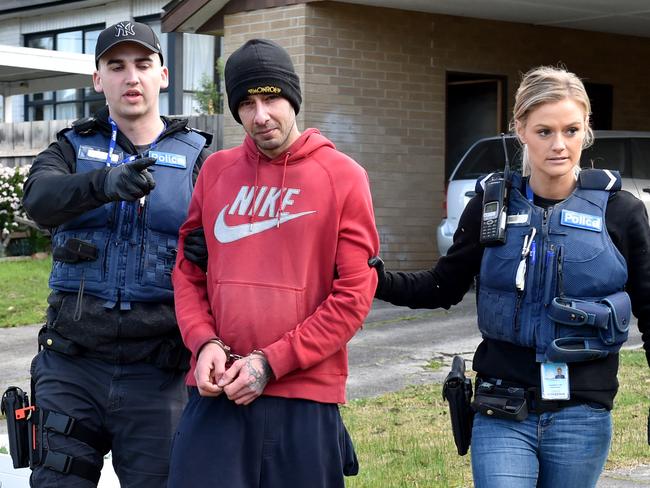
Graffiti vandal Leo Hocking was handed a community correction order last year after he was busted causing more than $20,000 damage.
The court heard Hocking was arrested after an accomplice left a bag full of photos and video evidence at a railway station.
Vandal X said the accomplice’s days in the graffiti scene would “almost certainly be over”.
“Our tags are our name and if it’s been busted or the police know it’s you then you can’t use it again so you have to protect it at all costs,” he said.
Another rule is do not “slash” or ruin another vandal’s tag or “piece”.
Vandal X said you only slash another tagger or crew when they’ve done something wrong.
Sometimes this can end in violence if warring crews or taggers cross paths which would have been the case had CW and CTSA stumbled on one another.
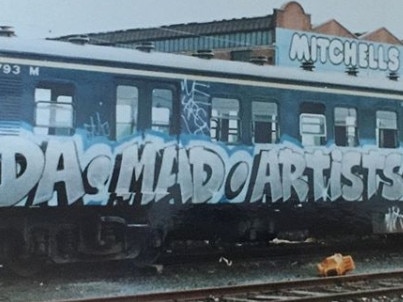
MELBOURNE’S MOST NOTORIOUS GRAFFITI GANGS:
DMA
(Da Mad Artists)
Origin: Unknown
Status: Active
Infamous members: Tame, Pronto, Puzle
One of Melbourne’s pioneering gangs revered in the graffiti community.
WCA
(Wild Child Artists)
Origin: Unknown
Status: Active
Infamous members: Puzle, Smack, Sick, Reach
Closely aligned with DMA, prominent and pioneering gang
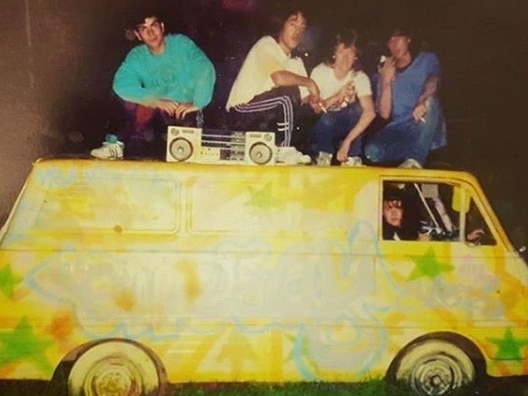
MSA
(Melbourne Suicidal Assassins)
Origin: Unknown
Status: Active
Infamous members: Dskyz, Zam
Original 1980s gang, early practitioners of “wild-style” graffiti
AC
(All City)
Origin: Unknown
Status: Active
Infamous members: Nack
Pioneering and prominent, AC tags are still seen all over Melbourne.
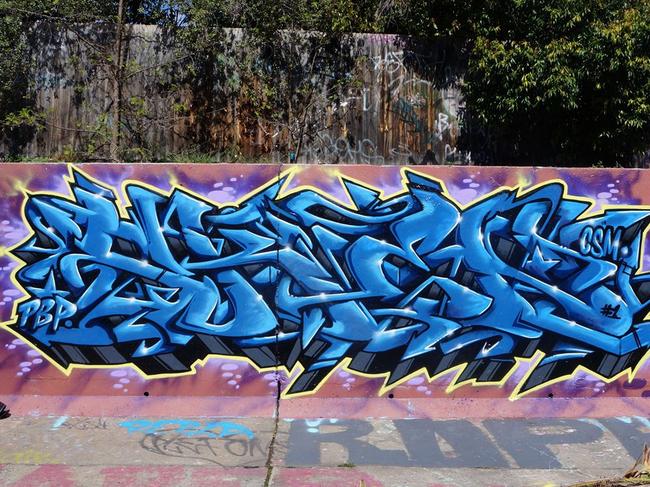
CW
(Crime Wave)
Origin: Lilydale, outer east
Status: Active
Infamous members: Spek, Sinker, Solve
Maniac gang of misfits from the Belgrave/Lilydale line whose graffiti during the peak of the mid-1990s could be seen almost everywhere.
PBP
(Puffing Billy Posse)
Origin: Belgrave
Status: Active
Infamous members: Sken, Slayer, Yeti
Closely aligned with CW, prolific on the Belgrave/Lilydale line.
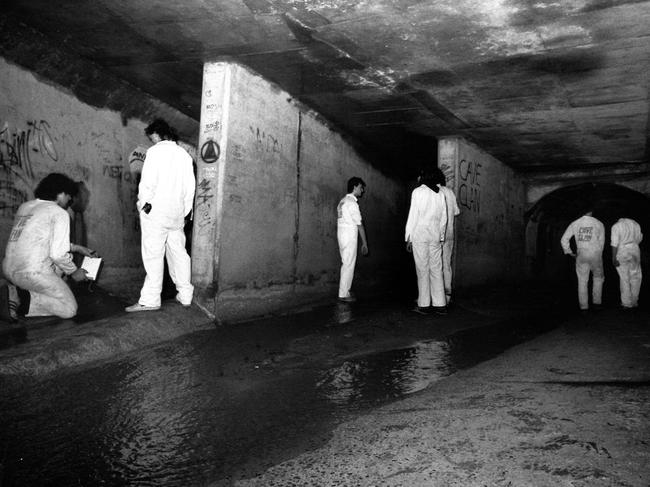
CAVE CLAN
Origin: Melbourne
Status: Active
Infamous members: Woody, Dougo, Sloth
Technically not a graffiti gang but the now Australian-wide crew is famous for exploring hard to reach spots such as the city’s subterranean drain and tunnel network where they would tag the group’s name.
SB
(Serial Bombers)
Origin: Eastern suburbs
Status: Active
Infamous members: Advert
One of the “new school” wave of the mid to late 1990s influenced by earlier crews such as DMA and WCA.
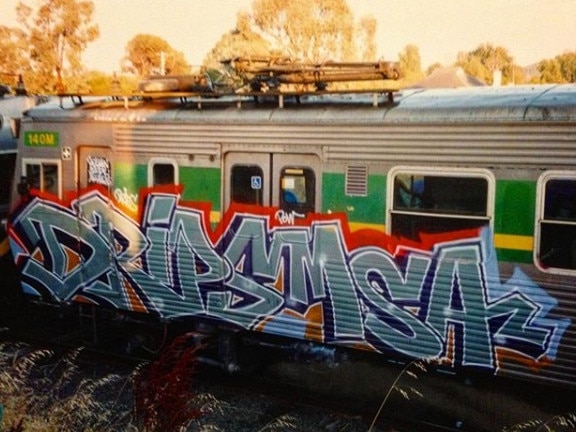
RTD
(Rock Tha Damage)
Origin: Camberwell
Status: Unknown
Infamous members: Hyace
Another of the new wave to come up in the late-1990s, targeted the Belgrave/Lilydale line between Box Hill and Glenferrie.
CTSA
(City Transit Slashing Art)
Origin: Unknown
Status: Inactive
Infamous members: Womble, Gumby, Joker
A counter-crew allegedly made up of old members of the Met and transit police which destroyed other gang’s graffiti.
Other notable gangs include: STR (Stands to Reason), AFP (Aerosol Freak Patrol), DRA (Da Richmond Arseholez, SDM (Sleep Deprived Maniacs)
MORE MELBOURNE HISTORY
HOW YOU KNOW YOU GREW UP IN DONCASTER
CRIMES THAT SHOOK MELBOURNE'S WILD WEST
